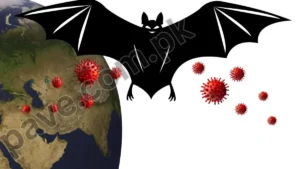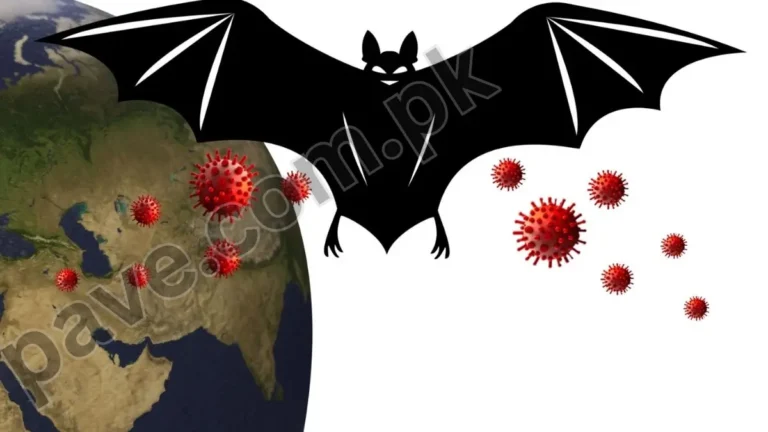Breaking News: PMDC Policy 2025 Sparks Uncertainty for Pakistani Medical Students

The Pakistan Medical and Dental Council (PMDC) has announced a set of structural changes under its upcoming Policy 2025, intended to “modernize and standardize” medical education across the country. However, instead of clarity, the move has ignited panic and confusion among students, parents, and educators — many of whom believe the reforms are being introduced without transparency, consultation, or transition planning.Breaking News: PMDC Policy 2025 Sparks Uncertainty for Pakistani Medical Students
For thousands of Pakistani students preparing for MBBS and BDS admissions, one question looms large:
Is PMDC reforming the system — or destabilizing it?
What’s Changing Under PMDC Policy 2025?
While the council has yet to officially publish the full document, multiple high-level reports suggest that the policy will include:
| Policy Area | Possible Change | Expected Impact |
|---|---|---|
| MDCAT Exam Pattern | Higher difficulty, new marking scheme | More failures, repeat attempts |
| Eligibility for Admissions | Higher merit threshold | Fewer students qualify |
| Private Medical College Fees | Revised fee structure | Higher financial burden |
| Licensing & House Job | New mandatory assessments | Longer delay before entering practice |
| Foreign Medical Degree Recognition | Stricter evaluation | Overseas graduate uncertainty |
These changes, if enforced without a transitional framework, could derail academic timelines by a year or more for incoming medical aspirants.
Read Also: District-Wise Quota for CM Mechanization Scheme in Punjab
Why Students Are Calling the Policy “Unfair and Untimely”
For many students, especially those preparing for MDCAT 2025, the lack of clear communication from PMDC is psychologically draining.
“We don’t know which syllabus to prepare for. We don’t know if the exam will be harder. We don’t know if seats will be fewer. How can we prepare for an exam when the exam itself is a mystery?”
— A Medical Aspirant from Lahore
Common concerns include:
- Merit students fear they’ll be pushed out by sudden policy shifts.
- Foreign medical students fear their degrees may lose recognition.
- Parents fear fee hikes disguised as ‘policy reform’.
- Repeater students dread that new rules may nullify past preparation efforts.
Experts Warn of a “Lost Generation of Doctors”
Education analysts argue that poorly executed reforms can harm more than help.
“Pakistan already suffers from a shortage of qualified doctors. If PMDC redesigns the admission and licensing system without proper transition phases, thousands of future doctors may be delayed or discouraged altogether.”
— Dr. Zahid Khan, Medical Education Analyst
They warn that major structural changes must be announced at least one year in advance, allowing students adequate time to adjust.
What Should PMDC Do to Restore Confidence?
To prevent further distress, experts and student bodies recommend:
✅ Immediate release of the full official PMDC 2025 Policy document
✅ Clear timeline for implementation — with separate rules for 2024 and 2025 batches
✅ Consultation with student unions, medical colleges, and foreign degree councils
✅ Fee regulation mechanisms to prevent exploitation under “policy reforms”
The Pakistan Medical and Dental Council (PMDC) is preparing to implement a new framework under its Policy 2025, which will directly impact MDCAT aspirants, foreign medical students, and Pakistanis planning to study MBBS/BDS abroad. While the final policy notification is still awaited, several key changes have already been highlighted through official statements and internal discussions.
Below are answers to the most frequently asked questions regarding PMDC Rule 2025.
1. What Is the New Policy for MDCAT 2025?
The new MDCAT 2025 policy is expected to bring the following changes:
- Revised exam format with a stronger focus on conceptual learning rather than rote memorization
- Increased difficulty level in Biology, Chemistry, and Physics questions
- Updated syllabus (likely to be aligned with federal curriculum, reducing provincial variations)
- Stricter passing criteria (minimum 65% – 70% expected instead of 60%)
- Centralized online exam system may be introduced to reduce cheating and paper leaks
PMDC is likely to officially notify the syllabus and pattern by early 2025, so students are advised not to rely on rumors and continue preparing according to current 2024 syllabus until confirmed.
2. What Is the PMDC Rule 2025?
The PMDC Rule 2025 refers to the upcoming regulatory changes that will govern:
- Admissions in MBBS/BDS (Public & Private Colleges)
- MDCAT conduct and merit calculation
- House job & licensing structure
- Recognition of foreign medical degrees
While the final rules have not been published officially, major restructuring is expected in merit formulas, possibly giving more weight to MDCAT score over FSc marks.
3. Will Pakistani Students Need NOC From PMDC for Medical Education Abroad?
Yes — under the proposed policy, PMDC is planning to make NOC (No Objection Certificate) mandatory for Pakistani students who wish to study MBBS or BDS abroad.
Why is NOC being reintroduced?
- To ensure students enroll only in PMDC-approved foreign universities
- To control unrecognized degrees that are later rejected during licensing
- To track the number of Pakistani students going abroad for medical education
Without NOC, students may not be allowed to appear in the PMDC licensing exam after graduation from abroad.
Read Also: Two New Dongfeng EVs Launching in Pakistan in 2026 – eπ 007 SedanConfirmed
4. What Is the New Policy for Foreign Medical Students in PMDC?
For Pakistanis studying medicine in countries like China, Kyrgyzstan, Uzbekistan, Georgia, and Malaysia, the 2025 policy may enforce stricter recognition rules, including:
- Mandatory PMDC Licensing Exam (NLE or Exit Exam) for all foreign graduates — even if they graduate from WHO/PMC-listed universities.
- University ranking verification — only graduates from higher-tier foreign institutions may be eligible for full registration.
- Compulsory clinical training (house job) in Pakistan — foreign internships may not be accepted anymore.
PMDC is also considering publishing a fresh list of foreign-approved medical colleges in 2025.
The Pakistan Medical and Dental Council (PMDC) is preparing to roll out its Policy 2025, introducing a range of reforms affecting MDCAT applicants, private medical colleges, foreign degree holders, and postgraduate trainees. While some changes aim to standardize quality, others have sparked anxiety among students, particularly those who began their journey under previous regulations.
Below is a comprehensive breakdown covering all major aspects of the upcoming PMDC Policy 2025.
PMDC Policy 2025 – Why Students Are Concerned
Medical students nationwide — especially those from MDCAT batches 2022 to 2024 — are expressing uncertainty over shifting admission and licensing rules. The lack of an officially published full framework has led to:
- Confusion about MDCAT 2025 syllabus and merit formula
- Fear of delayed licensing due to stricter degree recognition
- Concerns over foreign MBBS degree acceptance
- Anxiety about postgraduate seat limitations and exit exams
For those who entered medical colleges in 2022, the sudden policy transitions feel unfair and disruptive, with students demanding clarity instead of ambiguity.
Initial Recognition Framework — PMDC Approval for Colleges with 100 Students
One of the most significant changes under PMDC 2025 is the revised initial recognition framework for private and public medical colleges.
- PMDC plans to **grant provisional recognition to new colleges with an initial enrollment capacity of 100 students only (previously 150).
- Recognition will be conditional upon infrastructure, faculty qualifications, lab facilities, and clinical training access.
- Surprise inspections and annual audits will determine whether recognition continues or is revoked.
While this move aims to control profit-driven low-quality institutions, it may limit overall MBBS seat availability, making competition even tougher for MDCAT aspirants.
PMDC-Recognized Postgraduate Degrees — New Verification Rules
The policy also affects postgraduate medical qualifications, both local and foreign.
✅ Recognized Local Degrees (Continued Acceptance Likely)
- FCPS, MCPS, MS/MD (from HEC & CPSP-recognized institutions)
🛑 Foreign Degrees Under Review
Foreign postgraduate qualifications such as MRCP (UK), USMLE-based licenses, MD-China, MS-Central Asia, and FRCS will require fresh NOC-based verification before being registered.
PMDC is also considering:
- Exit Licensing Exam for Postgraduate Doctors trained abroad
- Mandatory return-based service requirement for scholarship-based specialists
This has raised concerns among foreign-trained Pakistani doctors, who fear delayed recognition and career stagnation.
Read Also: Two New Dongfeng EVs Launching in Pakistan in 2026 – eπ 007 Sedan
MDCAT 2025 — Expected Changes and Reforms
PMDC is expected to modify the format of the MDCAT exam starting 2025. Key expected reforms include:
| Area of Change | Current Policy | Expected 2025 Reform |
|---|---|---|
| Exam Format | MCQ-based conceptual test | More clinically-oriented problem-solving questions |
| Passing Criteria | 60% | 65% – 70% (proposed) |
| Attempt Limit | Unlimited | Possible limit of 3 attempts |
| Provincial Variation | Different papers per province | One nationwide unified paper |
| Syllabus | FSc-based | Revised syllabus aligned with National Curriculum Framework |
Students fear that if implemented without notice, the new MDCAT structure could unfairly disadvantage repeaters and mid-prep students.
Conclusion — Reform Must Not Come at the Cost of Stability
While PMDC Policy 2025 aims to improve standards, lack of timely transparency may lead to stress, confusion, and even dropout risks among medical aspirants. Experts recommend:
✅ Immediate publication of complete PMDC Policy 2025
✅ Separate rules for ongoing students vs. new applicants
✅ Transition period rather than sudden implementation
Until then, Pakistani medical students — especially batches 2022 onward — remain caught between reform and uncertainty.










